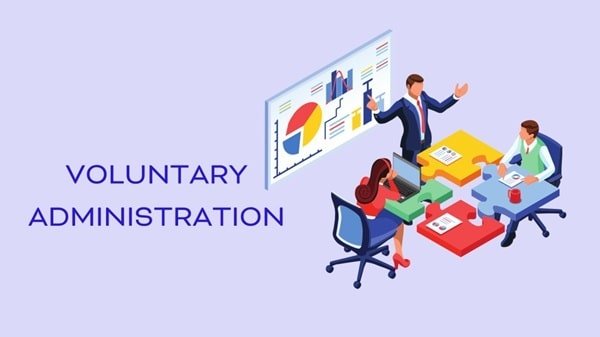Even the most responsible companies are susceptible to financial strain from market downturns, unexpected expenses, or cash flow disruptions. Rapid and strategic decisions are vital when a company cannot satisfy its debts and approaches the breaking point of insolvency. One of these methods is voluntary administration, a handy legal option for companies struggling with these issues. It provides a way to restructure or wind down the business with the assistance of an independent administrator, which can be the space required to assess a favourable path in the future.
A Guide to Voluntary Administration
Voluntary Administration services are a formal insolvency process governed by the Corporations Act 2001. It enables a company’s directors to appoint an independent administrator — usually a registered insolvency practitioner — who takes control of the company to review its financial situation and formulate options for its future.
The aim is to trigger the likelihood that the company will survive, or failing that, to get creditors a better deal than liquidating the business at once. Significantly, all legal action against the company is halted when an administrator is appointed, granting it interim protection while a plan is devised.

How Services On Voluntary Administration Help Business In Trouble
Engaging in professional voluntary administration services can be a lifeline for struggling companies. These professionals come in to evaluate the company’s financial condition, run operations during the administration period and communicate with creditors. They primarily serve to identify and provide a detailed report to creditors with options, such as:
A Deed of Company Arrangement (DOCA) is when creditors agree to a compromise on debts owed.
Putting the company back in the hands of its directors.
Winding down the company through liquidation if it is not viable.
These services offer structured, impartial guidance during a turbulent time.
They provide an overall framework of clarity, objectivity, and legal structure, enabling a director and the stakeholders to make informed decisions.
In addition, voluntary administrators must operate in the best interests of all stakeholders—employees, creditors, and owners. They also investigate the company’s business, recover assets, and chase unfair preference payments to return funds to the pot for all creditors. Their objective is stabilising the business and providing a route forward through restructuring or an orderly winding down.
Benefits of the Process
There are multiple benefits to Voluntary Administration:
Retains immediate relief from creditor pressure: Creditors cannot enforce debts throughout the administration.
Independent review: This means that an impartial third party assesses the business without risk of conflict of interest.
Time to plot: The administrator’s investigation period gives a breather to craft recovery strategies.
Flexible outcomes — a successful DOCA may permit the business to trade on terms acceptable to creditors.
Enhanced returns: In cases where the business cannot be rescued, voluntary administration can maximise creditors’ returns compared to the process that happens upon liquidation.
Final Thoughts
Voluntary Administration is a tactical measure to safeguard a business, its workforce and creditors when financial trouble hits. It creates space for recovery, reinvention or a dignified end—when the pressure is off for the work to be assessed or planned professionally. Turning to professional voluntary administration services provides an orderly process, has structure and support, and is centred on achieving the best possible outcome for directors and creditors.

Our dedicated team gathers information from all the reliable sources to make the law accessible and understandable for everyone. We provide the latest legal news stories from across the country, delivered straight to you.
